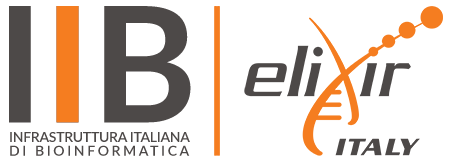Home Author Archives: Università di Verona
Università di Verona
About
The research activities at University of Verona focus on structural bioinformatics, biomolecular simulations, pipeline development and NGS data analysis applied to a wide range of organisms such as humans, bacteria, viruses, fungi, algae, plants and animals. Moreover, research efforts are devoted to the development of new efficient softwares and algorithms to face the computational challenges continually provided by data analysis from emerging technologies. University of Verona has invested also in the training of bioinformaticians and medical informaticians. It offers a five-year training (bachelor + master) in bioinformatics from the Department of Computer Science and a master’s degree from the Department of Biotechnology. Bioinformatics groups have interdisciplinary backgrounds such as computer science, biology, biotechnology, chemistry and medicine.
The main research activities include:
- Studies and development of algorithms for gene expression profiling (bulk, single cell RNA-Seq, Spatial Transcriptomics) and/or variant identification to evaluate the regulation process and/or identify gene/variant causing the phenotype, especially for clinically relevant conditions.
- Long reads workflows to identify copy number variations and structural variants.
- Metagenomics analysis based both on metabarcoding and whole metagenome sequencing to study the biodiversity and the microbiome composition and structure. In particular, analysis of the human gut microbiome and its association with health/disease in human.
- Molecular modeling and structural bioinformatics approaches to study structure/function relationships of macromolecules and their assemblies and protein-ligand interactions, with a special focus on disease-associated variants
- Molecular simulations of proteins and macromolecular assemblies using classical molecular dynamics and coarse-grained methods.
- Dynamic modeling of biochemical systems especially focusing on signal transduction pathways, using deterministic and stochastic mathematical frameworks.
- Machine learning algorithms to classify patients or disease states integrating heterogeneous data, from clinical, imaging to multi-omics.
- Design of sequential and parallel on advanced architectures algorithms for biological networks and sequences analysis.
- Temporal health/clinical data preprocessing and mining for hospitalized event prediction, optimization of medical care processes, drug target prediction and repurposing.
Contact
- https://www.univr.it/en/home
- rosalba.giugno@univr.it
- Via dell'Artigliere, 8
- Verona
- 37129
